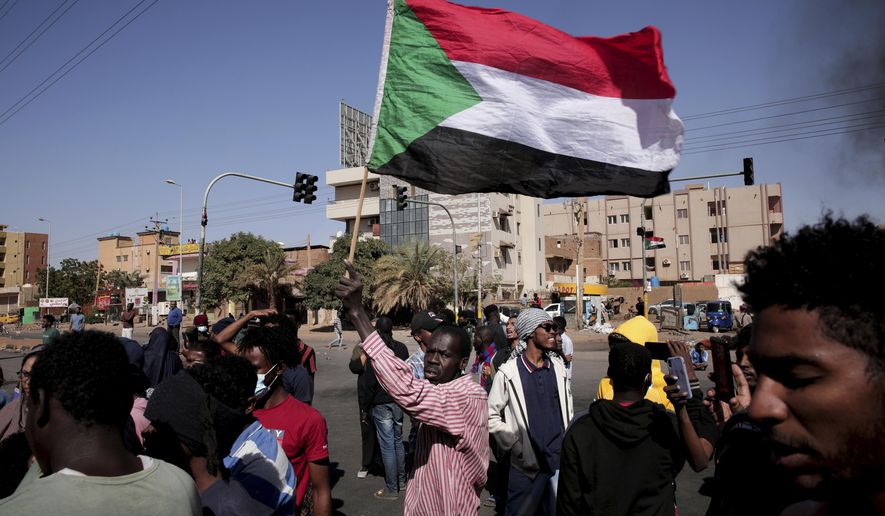CAIRO — The United States will continue withholding aid from Sudan until the country’s military rulers stop the killing of anti-coup protesters and a civilian led-government takes power, two senior American diplomats said Thursday.
The joint statement came after a two-day visit to Sudan this week by U.S. Assistant Secretary of State Molly Phee and the newly appointed U.S. special envoy for the Horn of Africa, David Satterfield. The visit was meant to help pull the African nation out of a worsening crisis in the wake of the Oct. 25 coup.
The military takeover has upended Sudan’s transition to democratic rule after three decades of repression and international isolation under autocratic President Omar al-Bashir, ousted during a popular uprising in April 2019.
While in the Sudanese capital, Khartoum, Phee and Satterfield met with Sudanese civilian and military leaders, as well as with families of some of the killed pro-democracy protesters.
At least 72 demonstrators have been killed since the October coup. Seven were killed on Monday alone, according to a doctors’ activist group. Security forces used live ammunition and tear gas to disperse thousands who gathered in Khartoum. Among the seven killed, some were as young as 19 years old. Around 100 people were wounded, according to the Sudan Doctors Committee.
On Wednesday, the committee, which is part of the pro-democracy alliance, documented the fatal shooting of another protester earlier in the day as security forces removed makeshift barricades in Khartoum’s twin city of Omdurman. The barricades were part of a two-day civil disobedience campaign the pro-democracy movement called for following Monday’s crackdown.
Police officials have repeatedly accused protesters of attacking security forces and police buildings, but have failed to provide evidence of such attacks. Main protest leaders have repeatedly called on demonstrators to use only non-violent tactics.
Sudan’s turmoil escalated after the resignation of Prime Minister Abdalla Hamdok earlier this month. Hamdok, who was ousted in the October coup only to be reinstated a month later under heavy international pressure, stepped down on Jan. 2 after his efforts to reach a compromise failed.
On Thursday, thousands again took to the streets, naming the day’s march after one of the recently killed young protesters. They beat drums and chanted anti-military slogans. Many reiterated calls for the military to leave power completely.
Phee and Satterfield said military leaders they met with during their visit had expressed their commitment to the country’s political transition. The two diplomats said they made clear to the generals that the U.S. “will consider measures to hold accountable those responsible for failure to move forward,” according to the statement.




Please read our comment policy before commenting.